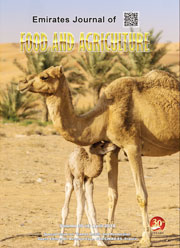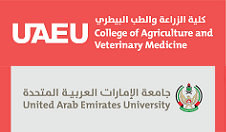The value of applying a myrrh extract to manage and control date palm aphids in Saudi Arabia and their classification
DOI:
https://doi.org/10.9755/ejfa.2022.v34.i3.2847Abstract
The date palm can be affected by aphids resulting in the development of sooty mould. Extracts from myrrh plants were utilized as biological
insecticides on aphids to learn its impact. Myrrh extracts had been evaluated using four separate amounts, namely 500, 1000, 5000,
and l0000 ppm. They were applied two times and then inspected at 12 and 24 h after the exposure to be contrasted to the unexposed
samples. The aphids eating date palms were subjected to myrrh extracts and categorized. The bio-insecticidal effects have been investigated
based on specific dynamics and genetic evaluation of both exposed and unexposed aphid samples. The biologically insecticidal effects are
relevant (P < 0.05) regarding all the four selected factors. Moreover, the genetic evaluation indicated that unfinished genetic sequences
have dramatically increased upon elevating amounts of myrrh extracts (0, 500, 1000, 5000, and 10000 ppm). Meanwhile, the average
genetic distance has reduced with enlarged amounts of myrrh extract in the 24-h period in the case of the exposed aphids in contrast to
unexposed samples. Myrrh extracts are very strong and perspective biological










 .
. 